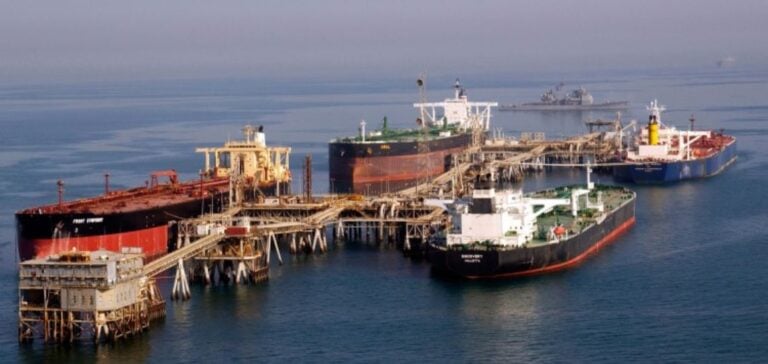Oil exports from Libya remain largely suspended, directly affecting regional energy flows.
Only a few exceptions allow loading from available stocks in ports such as Zueitina and Brega.
The conflict surrounding the Central Bank of Libya, the main repository of oil revenues, is disrupting the management of these strategic resources.
This political impasse has significantly reduced national oil production, according to local sources.
The tanker Kriti Samaria has been authorized to enter the port of Zueitina to load around 600,000 barrels of crude.
This shipment is destined for Italy, underlining the importance of the European market for Libyan crude.
Another vessel, the Front Jaguar, is currently loading at Brega.
Despite these limited movements, global exports remain largely paralyzed, as a direct consequence of the power struggle between Libyan factions.
Blocking production and financial stakes
Since August 26, oil production has been held back by the decision of factions in the east to halt all extraction, in reaction to the west’s attempt to replace Central Bank Governor Sadiq al-Kabir.
The Tripoli-based entity is at the center of an intense political battle, reflecting ongoing internal rivalries.
The National Oil Corporation (NOC) reports a drop in production to around 590,000 barrels per day (bpd), well below the 1.18 million bpd capacity recorded in July.
The Central Bank plays a crucial role as the sole manager of hydrocarbon revenues, making it a key issue for economic control.
Political and institutional tensions prolong the uncertainty for operators and investors in the energy sector.
The recent agreement between the two legislative chambers to resolve the dispute offers some hope, but there is no guarantee that production and exports will soon return to normal.
Impact on the regional energy market
The impact of this crisis extends beyond Libya’s borders.
Disruptions to Libyan exports, particularly to Europe, influence market balances, especially at a time of global supply tensions.
For European players, a prolonged reduction in supplies from Libya could necessitate strategic and contractual adjustments.
Political and economic uncertainty in Libya is also generating concerns about the long-term reliability of its oil supplies.
International companies present in Libya also find themselves in a delicate position, navigating between political volatility and operational risks.
A possible deterioration in the situation could force these entities to review their commitment and investments in the sector.
The Mediterranean oil market thus remains under observation, monitoring the evolution of internal political negotiations and their potential impact on Libyan oil production and exports.
Political stabilization needed to revive the sector
Resolving the conflict over the Central Bank is essential to restoring stability and relaunching normal export operations.
However, mistrust between rival factions, combined with foreign interests involved in the country, complicates the path to a lasting solution.
Economic players, both national and international, are following developments closely, aware that the full reopening of Libya’s oil sector depends on a solid political agreement.
While mediation efforts continue, the issue of control over key financial institutions, such as the Central Bank, remains at the heart of the negotiations.
As long as this issue remains unresolved, Libya’s oil sector will continue to operate under significant constraints, with repercussions for the entire regional energy supply chain.





















